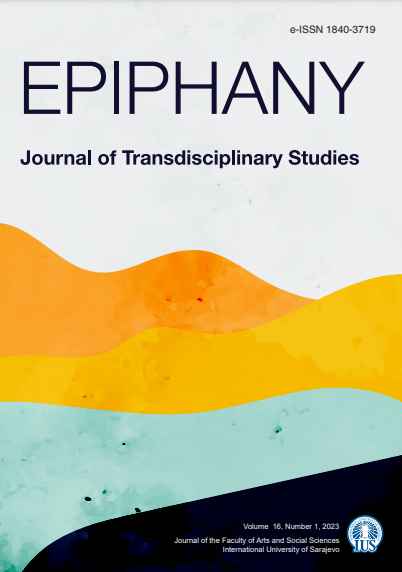CLASSICAL VERSUS BLACK MUSIC AS AN IDENTITY TROPE IN LANGSTON HUGHES THE WAYS OF WHITE FOLKS
CLASSICAL VERSUS BLACK MUSIC AS AN IDENTITY TROPE IN LANGSTON HUGHES THE WAYS OF WHITE FOLKS
Author(s): Adriano EliaSubject(s): Customs / Folklore, Culture and social structure , Theory of Literature, American Literature, Sociology of Literature
Published by: International University of Sarajevo
Keywords: Langston Hughes; The Ways of White Folks; American studies; short fiction; black music;
Summary/Abstract: The Ways of White Folks (1934) is Langston Hughes’s first collection of short stories. Inspired by the reading of D.H. Lawrence’s The Lovely Lady (1927), the fourteen stories collected in this volume offer a disillusioned portrait of that early-1900s black America torn apart by the Du Boisian double consciousness. Through sharp and direct language, these stories present poignant daily-life incidents dealing truthfully with—in Hughes’s words—“some nuance of the race problem”. Among the wide array of issues touched on, the dichotomy classical versus black music becomes a powerful identity trope, remarkably in “Home” and “The Blues I’m Playing”, whose protagonists stand between the Western classical tradition—a marker of a presumably “higher” culture—and black vernacular music, notably blues and jazz, revealing their allegiance to “authentic” blackness. The staging of this musical double consciousness is further complicated by the contradictions of patronage and the power relations involved in the white patron-black artist relationship. The paper tackles these musical identity dilemmas by making a comparison between the allegedly polarized dichotomy classical vs black music of the 1930s as against today’s more intricate scenario.
Journal: Epiphany. Journal of Transdisciplinary Studies
- Issue Year: 16/2023
- Issue No: 1
- Page Range: 9-27
- Page Count: 19
- Language: English

